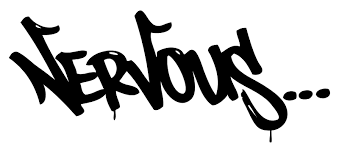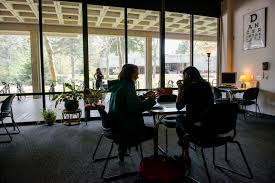
I remember the first time I critiqued someone’s work I was nervous. It was my first writers group and I wasn’t sure I belonged. It was not because of my writing it was because I had no clue how to critique.
I remember it was a nice story. Not something I would actually sit down and read but it was nice and the person who write it was nice.
There were parts that could have been better. Certain scenes, I remember, that could have been explained or drawn out and there were some areas that were not necessary.
When my time came, I sat up straight, cleared my throat and gave a sixty second mumble, stumble, rambling mess.
Clueless
Offhand I haven’t a clue what I said but I do know that those sixty seconds dragged on for the longest time.
Luckily as time went on I improved. I stopped putting feelings ahead of the critique and the more I did the more confident I became.
But it took a while.
I’ve learned a lot since those early days. I think a lot of it has to do with listening to others who were way better than I was.
The way some of them could turn a story inside out and see details I couldn’t see fascinated me. It always amazed me how a person could grab a scene and see it in a way that captured an unknown light.
Teachers among us

The biggest lesson was watching them when they worked on my story. The way they could chop a paragraph in two or expand a sentence. It not only made my story better it taught me how to critique like them.
The most valuable lesson I learned was that it was not my story. For the longest time that was my biggest challenge.
I kept seeing their stories in my voice and in my eyes. By doing so I tried to turn their story in my direction. It took a while but in time I learned to drop that dreaded habit and respect the writer.
One of the hardest things to do when critiquing a writer’s work is pushing away the temptation to make it your own.
It’s tempting to take a chapter and advise them to redo it your way. Along the way I learned to turn off the switch and force myself to see the story in the writer’s vision.
When this finally happened I knew I had a chance to actually help them.
You did good my son (daughter)
The other thing I learned was compliments. It’s so easy to concentrate on mistakes we lose site on their excellent writing. It’s easy to scan for improvements while ignoring the good stuff that’s already there.
I try to point out a scene I like. The reason is not so much a compliment as it is to high-light good writing. It’s my way of telling them their story needs more of this.
When I first started I had no idea critiquing would help my writing. I always figured it was a one way street.
I was wrong.
It allows me to see the different ways a writer will explore a scene. More often than not, critiquing is a classroom where every day I come away with something new.
Try to find time to critique someone’s work. Not only will it help them it will make you better.
How perfect is that!

Critiquing sounds a lot like editing in today’s language. Working to improve others work is hard. My editors have told me many times. I caught on to what they wanted and it went like a hot knife through frozen butter. Keep doing what you do my friend !! Well written and directed at your target audience !
LikeLiked by 1 person
Thank you. I appreciate that. A lot of critiquing is done in groups. It’s a good way to start. They are your audience. Think of it as a test audience. It allows the writer to get a feel if their scenes work or not.
LikeLiked by 1 person
You are right Bryan. Authors need ways to ensure our scenes are coming through the right way. Thanks for the encouraging thoughts.
LikeLiked by 1 person
Excellent post, Bryan. You really nailed what makes a good beta reader, someone who will point out the good, the bad, and not tell the writer how to write.
LikeLiked by 2 people
It was a lot harder than I thought it would be. I’m glad there was no video is me the night of my first critique. Ouch. Thanks as always!!!!
LikeLiked by 1 person
Great post, I had similar experiences when beta reading and offering feedback in my writing group. Being about to handle a critique and learning from it has made me a stronger writer. I think that’s what we all hope to offer when we review someone’s work.
LikeLiked by 1 person
Hi Lorraine. I never realized how much I would learn. It does teach the writer how to improve their own skills. That was my most pleasant surprise.
LikeLiked by 1 person
Absolutely perfect!
LikeLiked by 1 person
You made my day!!!!! 🙂
LikeLike
You are so right, critiquing has a learning curve. Every time I have my work critiqued, I try to learn from what other writers (and readers) have pointed out. Great post, Bryan!
LikeLike
Hi Julie. It takes time but it’s worth it. I’ve met some great teachers along the way.
LikeLike
“t’s tempting to take a chapter and advise them to redo it your way.” This is a common problem with all advice — on any subject. We tend to tell others what we would do, forgetting they will usually have different objectives.
I learn a lot from critiquing too. Nowadays, I tend to focus on the good and forget the bad on the theory that getting across to them what’s good in their work is far more important than getting across what’s bad, and that if I mention the bad, too many of them will focus on it.
LikeLike
Us writers are a sensitive beast, aren’t we. Give us a hug, shower us with compliments and chances are we will listen to the bad stuff and learn.
LikeLike
For some reason I am the go to beta reader for most of my “friends” I have never been in critiquing group or anything like that but look like I might have to start one seeing as everyone keeps finding me, looks like somehow I picked up the habit of not tutrning someone’s work into mine, probably mostly for selfish reasons ha! I did not want my friends writing like me but well it go the job done and here we are
Thanks for the tips
~B
LikeLike
I have a feeling, Beaton, I am going to call on you when I need a Beta Reader. 🙂
LikeLike
This is a great guide, if I ever get far enough in my writing career to be able to evaluate others.
LikeLike
Thank you for stopping by and please let me know if you need some help.
LikeLike
“I try to point out a scene I like. The reason is not so much a compliment as it is to high-light good writing. It’s my way of telling them their story needs more of this.”
These three sentences really opened my eyes, very profound!
LikeLike
Exactly. It allows the writer to see what they’re doing right.
LikeLike
I have my books critiqued by at least two people, Bryan, and I have found it a huge help with my writing. I learned a lot. I have never tried to critique someone else’s work but I can imagine the friendships would make it difficult. It can even be hard with reviews.
LikeLike
But it can be done. With friends there has to be an understanding at the beginning and I think a lot of it begins with the writer. They have to tell their critique partner what they need but most of all they need to tell them to be tough.
My editor is a dear friend of mine but we did it.
LikeLike